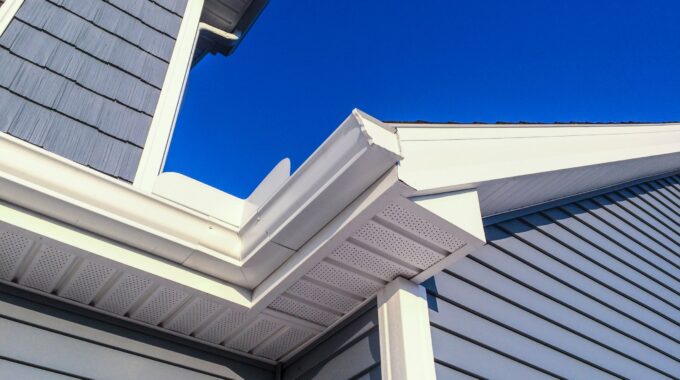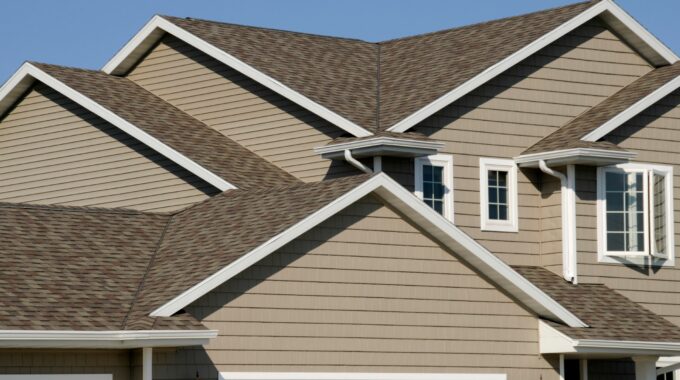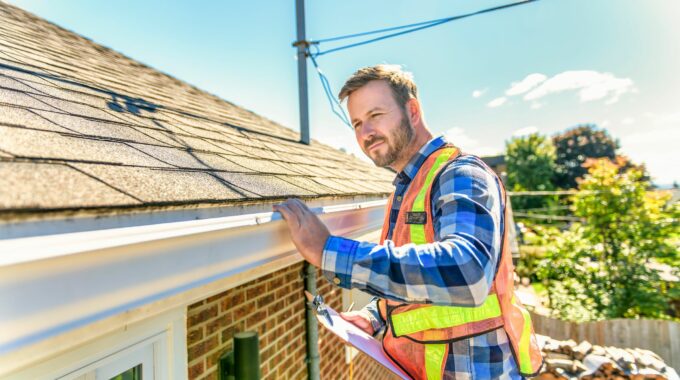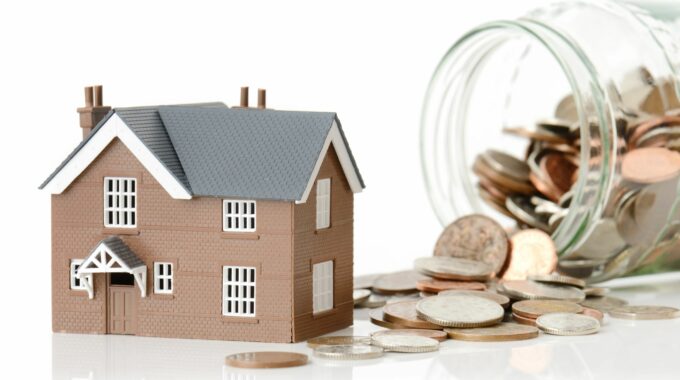
Different Types Of Siding For Your New Jersey Home
When it comes to choosing the best siding material for homes in New Jersey, it is essential to consider the local climate and performance of various options. New Jersey experiences a climate with hot summers and cold winters, including snow and high winds. Therefore, it is crucial to select a siding material that can withstand these conditions.
Types of Siding
Siding is an essential component of any building’s exterior, providing protection, insulation, and aesthetic appeal. There are various types of siding materials available in the market, each offering unique features and benefits. Whether you are constructing a new home or planning to renovate an existing one, understanding the different types of siding can help you make an informed decision. Each type has its own advantages and considerations, such as durability, maintenance requirements, cost, and design options. By examining the characteristics and factors of these different siding materials, you can determine which one best fits your needs and complements the overall style of your property.
Vinyl Siding
Vinyl siding has come a long way from being a poor-quality material to becoming a popular choice for home exteriors. Over the years, advancements in technology and manufacturing processes have transformed vinyl siding into a durable and aesthetically pleasing option for homeowners.
One of the main reasons why vinyl siding is preferred is its affordability. Compared to other materials like wood or brick, vinyl siding is relatively cheaper, making it an excellent choice for homeowners on a budget. Additionally, vinyl siding is known for its durability. It can withstand harsh weather conditions, including extreme heat, cold, and moisture, without showing signs of wear or damage.
Another advantage of vinyl siding is its ability to mimic more expensive options like cedar shakes. With advancements in design and manufacturing, vinyl siding can now replicate the look and texture of wood, without the high cost and maintenance requirements that come with real wood.
Vinyl siding also offers several advantages for homeowners. Firstly, it comes in a wide range of colors and styles, allowing homeowners to customize the appearance of their homes to their liking. Moreover, vinyl siding is relatively easy to install, requiring less time and labor compared to other siding options. Lastly, vinyl siding is low maintenance, requiring only occasional cleaning with mild soap and water, eliminating the need for frequent repainting or staining.
Fiber Cement Siding
Fiber cement siding is a popular choice for homeowners due to its unique composition, durability, and versatility. It is made from a blend of cement, sand, and cellulose fibers, resulting in a strong, weather-resistant material that can withstand harsh elements. This composition not only makes fiber cement siding highly durable but also ensures it maintains its shape and integrity over time.
One of the key features of fiber cement siding is its ability to mimic various textures, giving homeowners the flexibility to achieve the desired look for their homes. Whether you prefer the appearance of wood, stonework, or even brick, fiber cement siding can be designed to replicate the texture and aesthetics of these materials.
In addition to its versatility in texture, fiber cement siding can also be pre-finished or painted to match any style or color scheme. This allows homeowners to customize their exterior and create a seamless integration with the overall design of their homes.
Aside from its aesthetic appeal, fiber cement siding offers numerous benefits. Its long lifespan is a major advantage, as it can last for several decades without significant wear or damage. This longevity not only saves homeowners money on frequent replacements but also positively impacts the overall value of their homes.
Furthermore, fiber cement siding is highly resistant to insects, such as termites, which can cause extensive damage to traditional wood siding. With fiber cement siding, homeowners can enjoy peace of mind knowing that their investment is protected from insect-related issues.
Lastly, fiber cement siding requires minimal maintenance compared to other siding options. Its resistance to rot, warping, and fading means homeowners can spend more time enjoying their homes and less time on costly and time-consuming upkeep.
Engineered Wood Siding
Engineered wood siding offers a range of benefits and features that make it a popular choice for homeowners. One of its most notable advantages is its improved durability compared to traditional wood siding. Engineered wood is made by combining wood fibers with resins and adhesives, resulting in a product that is much more resistant to rot, warping, and cracking. This increased durability ensures that the siding lasts longer and requires fewer repairs or replacements over time.
Additionally, engineered wood siding provides excellent weather protection. Its composition and manufacturing process make it highly resistant to moisture, making it less susceptible to water damage and mold growth. This is especially important in regions with high humidity or frequent rainfall.
Another key advantage of engineered wood siding is its low maintenance requirements. Unlike traditional wood siding, which often needs to be repainted every few years to maintain its appearance and protect it from the elements, engineered wood is coated with a protective exterior finish during the manufacturing process. This coating helps prevent fading, and because it is factory-applied, it tends to last longer than traditional paint. As a result, homeowners can enjoy a beautiful, vibrant siding without the need for constant repainting or maintenance.
Engineered wood siding also stands out due to the technology used in its production, which offers protection against termites and pests. The resins and adhesives used in its manufacturing process are often treated with insect-repellent chemicals. This treatment creates a barrier that helps deter termites and other pests from causing damage to the siding, providing homeowners with peace of mind.
Siding Installation in New Jersey
Siding installation is an essential process that homeowners in New Jersey should consider to enhance the aesthetics and durability of their homes. Siding not only protects your house from harsh weather elements such as rain, snow, and UV rays but also adds to its visual appeal. Therefore, ensuring a proper and reliable siding installation is crucial to enjoy the numerous benefits it offers.
When it comes to siding installation in New Jersey, Roofing By Carl’s stands out as a reputable and reliable company. With years of experience in the industry, we have built a solid reputation for excellence. We provide top-notch siding installation services to meet the various needs and preferences of our clients.
Roofing By Carl’s offers a wide range of siding options for homeowners to choose from. We understand that every homeowner has unique tastes and requirements when it comes to siding. Therefore, we offer options such as wooden siding, vinyl siding, and fiber cement options. Whether you prefer the timeless elegance of wooden siding or the low-maintenance convenience of vinyl siding, Roofing By Carl’s has got you covered.
Trust Roofing By Carl’s to transform the exterior of your home with our top-notch siding installation services. Contact our siding experts today to get started on your siding project.
FAQs: Siding Installation
Q: What factors should I consider when selecting house siding?
A: When choosing house siding, there are several important factors to consider. These include the climate in your area, the desired appearance of your home, the cost of materials and installation, the maintenance requirements, and the durability of different siding options.
Q: What are the most common types of house siding?
A: The most common types of house siding include vinyl siding, fiber cement siding, wood siding, and aluminum siding. Each type has its own pros and cons in terms of cost, appearance, durability, and maintenance needs.
Q: How long does house siding typically last?
A: The lifespan of house siding varies depending on the material. Vinyl siding typically lasts 20-40 years, fiber cement siding can last up to 50 years, wood siding lasts around 20-30 years with proper maintenance, and aluminum siding can last up to 40 years.
Q: What are some common concerns or problems with house siding?
A: Common concerns with house siding include fading or discoloration, cracking or warping, water damage, pest infestation, and the need for regular maintenance. It is important to choose a siding material that is well-suited to your specific climate and environmental conditions to minimize these issues.
Q: How much does house siding installation typically cost?
A: The cost of house siding installation can vary widely depending on several factors, such as the size of your home, the type of siding material chosen, and the complexity of the installation. On average, homeowners can expect to spend anywhere from $5,000 to $15,000 for a standard-sized home.





